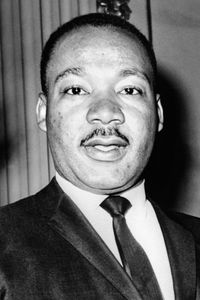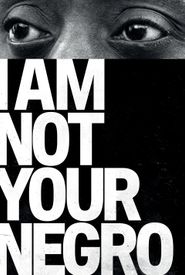Martin Luther King Jr. was born on January 15, 1929, in Atlanta, Georgia, to Alberta Christine Williams, a schoolteacher, and Martin Luther King Sr., a pastor of the Ebenezer Baptist Church in Atlanta. At the age of six, Martin experienced the beginning of the civil rights movement when two of his friends refused to play with him because of the color of his skin. This incident had a profound impact on Martin and altered the direction of his life.
As a teenager, Martin excelled in school, skipping ninth and 12th grades, and displaying exceptional skills on the violin and as a public speaker. However, one evening, after winning a debate tournament, he and his teacher were forced to give up their seats on a bus to two white passengers, an experience that left Martin infuriated and determined to protest.
Martin entered Morehouse College at the age of 15, intending to become a doctor or lawyer. After graduating at 19, he decided to pursue a career in theology, attending Crozer Theological Seminary in Chester, Pennsylvania. He was one of six black students in a predominantly white institution and excelled academically, winning the highest class ranking and a $1,200 fellowship for graduate school.
In 1951, Martin entered Boston University School of Theology to pursue his Ph.D. It was during this time that he met and married Coretta Scott King, a soprano studying at the New England Conservatory of Music. Martin's exposure to the teachings of Mahatma Gandhi, who led India to independence through nonviolent protests, greatly influenced his approach to the civil rights movement.
In 1954, Martin accepted a call to become the pastor of the Dexter Avenue Baptist Church in Montgomery, Alabama. Despite his wife's concerns about the safety of their family in Alabama, Martin insisted on moving to the state. The incident that changed Martin's life forever occurred when Rosa Parks, a 42-year-old black seamstress, refused to give up her seat on a Montgomery bus to a white passenger. Martin became the leader of the Montgomery Improvement Association, which aimed to boycott the city's bus system until public transportation laws were changed.
The boycott was long and violent, but eventually, the city's white merchants began to complain about the economic losses, and the city responded by filing charges against Martin. While in court, Martin learned that the U.S. Supreme Court had affirmed the decision that the local laws requiring segregation on buses were unconstitutional.
In 1959, Martin resigned as pastor of the Dexter Avenue Baptist Church to become the leader of the Southern Christian Leadership Conference (SCLC). He moved his family to Atlanta and established a regional network of nonviolent organizations.
In April 1961, Martin coordinated the SCLC and other civil rights organizations to take a "freedom ride" through the South. The ride was met with violence in Anniston, Alabama, and Birmingham, Alabama, but Martin decided to abandon the ride before someone was killed. The riders insisted on completing the ride to Montgomery, where they were greeted with more violence.
In January 1963, Martin organized a freedom march in Birmingham, which was met with violence from the city's police force. The march was witnessed across the country, sparking a national outrage. Martin's nonviolent strategy had worked, and the city's merchants agreed to integrate lunch counters, fitting rooms, restrooms, and drinking fountains within 90 days.
In August 1963, Martin delivered his famous "I Have a Dream" speech at the March on Washington, calling for freedom and equality for African Americans. The speech was witnessed by nearly 200,000 people and echoed throughout the world.
By mid-October 1964, Martin had given 350 civil rights speeches and traveled 275,000 miles across the country. On October 14, 1964, he was awarded the Nobel Peace Prize while in an Atlanta hospital after collapsing from exhaustion.
In April 1968, Martin traveled to Memphis, Tennessee to support a strike by the city's sanitation workers. On April 4, 1968, Martin was assassinated on the balcony of the Lorraine Motel by a sniper's bullet. Despite his death, Martin's legacy continues to inspire people around the world to work towards a more just and equal society.








































































































